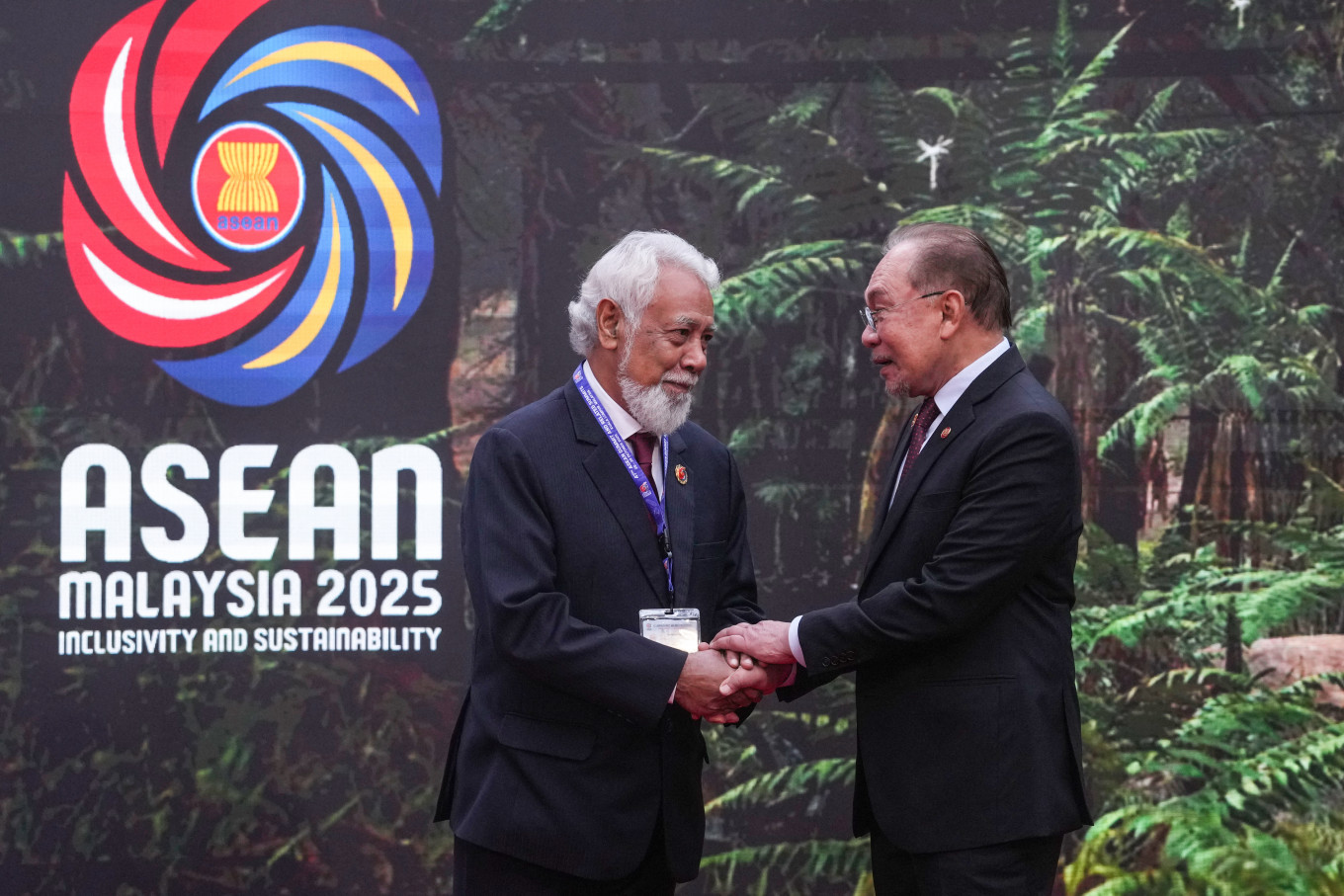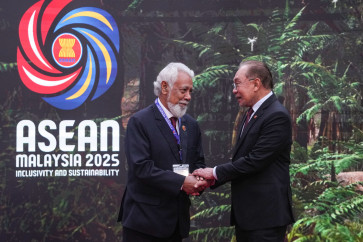Popular Reads
Top Results
Can't find what you're looking for?
View all search resultsPopular Reads
Top Results
Can't find what you're looking for?
View all search resultsASEAN strengthens southern solidarity
Recent ASEAN summits marked an important point in the bloc’s efforts to navigate its own way in the global system, reinforcing its internal cohesion and developing an outward-looking agenda.
Change text size
Gift Premium Articles
to Anyone
T
he platform of ASEAN-related summits have been some of the cornerstones in the architecture of regional cooperation. This year, convened against the backdrop of growing economic challenges and uncertainties, intensifying global tensions and rivalries as well as strategic and economic flux across Southeast Asia and beyond, ASEAN-led events in Kuala Lumpur last month delivered a series of tangible outcomes reinforcing the geopolitical and geoeconomic profile of ASEAN and attracting the world to witness processes unfolding in the region.
The summit week marked an important point in ASEAN’s efforts to navigate its own way in the global system, reinforcing its internal cohesion and developing an outward-looking agenda, especially in the context of the East Asia Summit (EAS) 20th anniversary. New trade and investment frameworks as well as commitments toward sustainable and digital transitions were inked, complex multi- and bilateral negotiations were convened and the accession of Timor-Leste to ASEAN completed the geographic footprint of Southeast Asia.
Russia joined the EAS in 2010, and this year also marked our own anniversary with the forum. But already in 2005, President Vladimir Putin took part in the very first EAS Summit in Kuala Lumpur as a special guest of the Chair. Russia has always seen a large potential of this forum. This year, the Russian delegation at the 20th EAS was headed by Deputy Prime Minister Alexey Overchuk. Our priorities included areas such as food security, economy and trade, energy, critical supply chain stability, regional and interregional connectivity, disaster management and cultural diversity.
Russia has consistently supported the priority theme of the Malaysian chairmanship throughout the year. Indeed, sustainability and inclusivity have become even more relevant in the times of the unprecedented challenges to the global trade system. This is something we can continue working on within the ASEAN-led formats, particularly the EAS.
The EAS was created with the aim of contributing to peace, stability and prosperity in the region by enhancing cooperation based on the principles of equality, partnership, consultation and consensus. In today's uncertain world, such formats and principles should be in a greater demand than ever.
The EAS is among the few forums that gather all key players of the region at one table. It could truly become a unique platform through finding compromises and joint solutions on important regional issues, particularly in various areas of practical cooperation. However, this potential is hampered by the reluctance of some participants to put aside their geopolitical ambitions in favor of joint work.



















